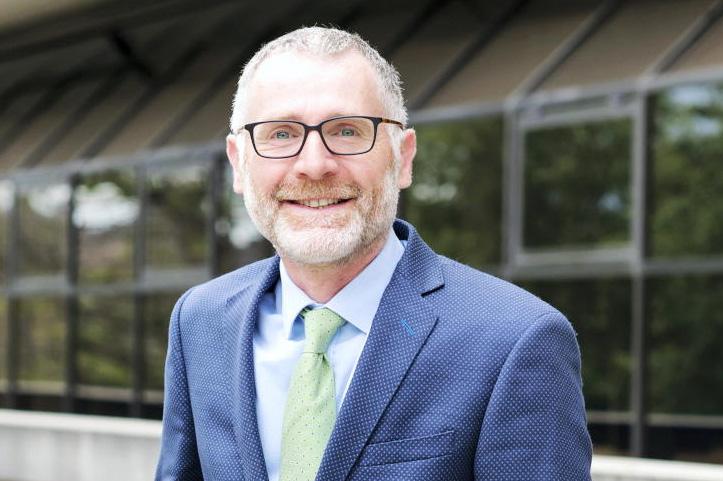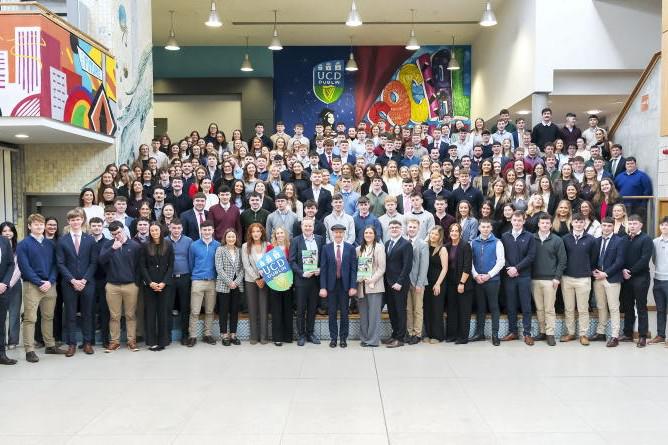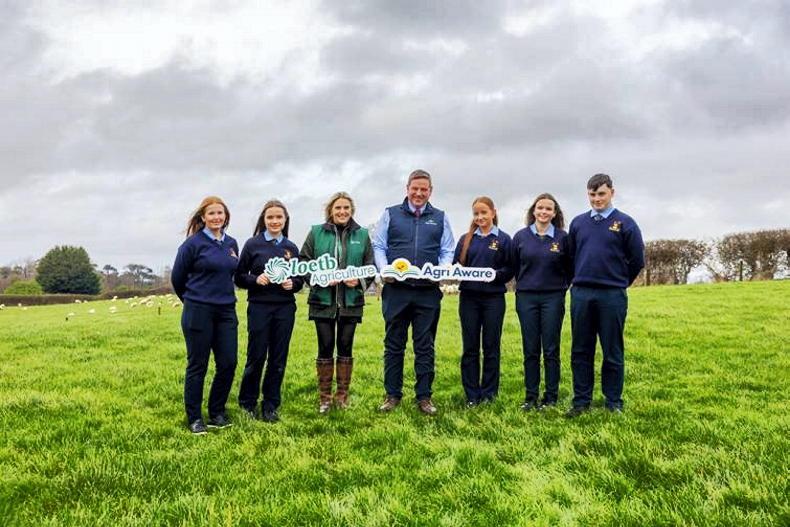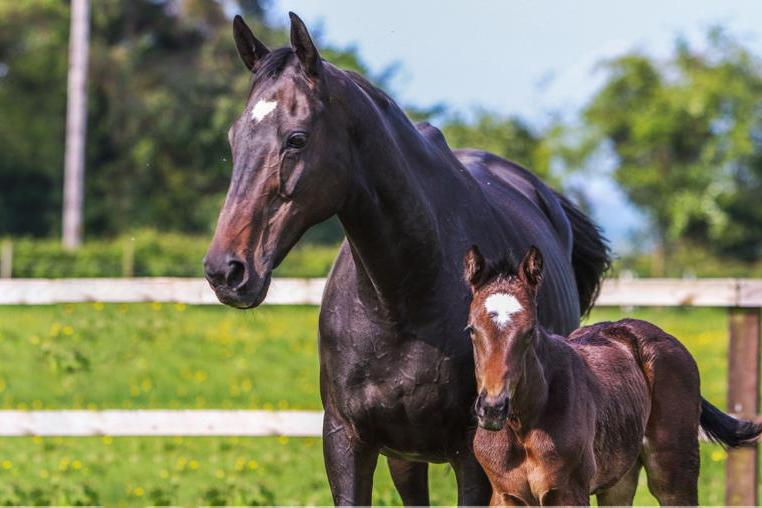Communication and clarity are two things which are very important to Professor Frank Monahan. As Dean of Agriculture and Head of the School of Agriculture and Food Science at University College Dublin (UCD), the future of food and farming is never far from his mind.
“[The kind of work we do] is about bringing clarity – and when trying to do that, there is always a danger of confusing people more,” he laughs. “And that’s a challenge we have to address: to get our message out in a way which is accessible.”
Adding value
For Frank, being open and clear in terms of messaging isn’t reserved for the general public – it goes across the board, from consumers (who increasingly want to know what they’re eating) to farmers (who work within a constantly evolving environment) to the students who are learning under his remit.
The decades-long work he’s been doing within agriculture and food science has mainly been around adding value to agricultural products and bringing increased clarity to the biological make-up of our foods. But Frank is also a teacher, and aims to impart on his students a balanced and deep-rooted understanding of not only their subject matter, but of the challenges and opportunities that lie ahead.
“We try to get that ‘holistic’ message out [at UCD] because our programmes span the food chain,” he explains. “Even students specialising in specific areas - we try to make sure the links are there to the other elements of agricultural science. We’re very fortunate that our research and learning goes from soil science to production right through to environment, food science and human nutrition.”
Agricultural roots
Growing up on a beef and sheep farm in Co Meath, Frank was always interested in science but he admits it was more biochemistry and food sciences he was initially attracted to, rather than agriculture. His years of research brought him back to his agricultural roots. His PhD and post-doctorate studies would also see him travel across the Atlantic on two separate occasions.
“I came to study science at UCD, initially, and went on to study food science having done biochemistry,” he recalls. “So it was a link between science and biochemistry to the science of food which led me to a PhD looking at the impact of the diet of pigs on pork quality. I did that at University College Cork (UCC) and as part of that, I went to Michigan State University. They had a pig farm, so I continued the work with the pigs over there.
“After that, I finished up at UCC and went back to the States - I liked it so much! - to do a post-doctorate at UC Davis (in California),” he continues. “At that stage, I moved onto the dairy side of things, to dairy protein. At that time, we were looking at how to make use of whey, which was a by-product of cheese making, to extract the proteins and look at ways to incorporate them into foods. [The aim was to] add value to the whey, which we know is a huge industry now - that was in ’92-’93.”
Clarity for consumers
More recently, Frank has been conducting DAFM-sponsored research finding markers within beef to tell us how grass-fed an animal was. The results of this research will, again, have the power of communication in the form of bringing clarity to consumers, who are becoming adept at reading fine print on food labels.
“Consumers - particularly as meat and dairy become more premium products - will want to know how the animals were raised; what the diet of the animal was. It’s the story of the food,” he explains.
Having been teaching at UCD since 1994, Frank says it’s mad to think of how many students have passed through his classes from then to now. But he also says his career has been extremely rewarding.
“You have great flexibility to teach but also to do research in the areas that interest you,” he says.
The future
Even with nearly three decades of teaching under his belt, Frank is, as ever, looking to the future of agricultural science, food science and their course offerings at UCD.
“We’ve just finished our strategic plan for the school and there are a number of things we want to focus on,” he says. “One focus is on developing our Lyons Farm and having it as more part of the UCD story, because not every university has a farm like it.
“I would like to see more innovation and entrepreneurship in our programmes where students are exposed to that entrepreneurial experience,” he continues. “We teach them and give them facts, but we don’t give them a chance to try something and fail at it – and try again and fail! And actually to give them credit for taking a risk. We need our graduates to go out there without that fear of failing. I want to see modules of innovation embedded in our undergraduate programmes.”
While acknowledging the many challenges ahead for food and agriculture, Frank also maintains that a focus on scientific solutions can have a hugely positive impact on the environment and society as a whole.
“The applied nature of what we do – that’s what I love about agriculture and food. It’s an applied science and you can see the benefits of it very readily.”CL
Read more
Building a sustainable future in UCD
New 12-week entrepreneurship course for those living with disability
Communication and clarity are two things which are very important to Professor Frank Monahan. As Dean of Agriculture and Head of the School of Agriculture and Food Science at University College Dublin (UCD), the future of food and farming is never far from his mind.
“[The kind of work we do] is about bringing clarity – and when trying to do that, there is always a danger of confusing people more,” he laughs. “And that’s a challenge we have to address: to get our message out in a way which is accessible.”
Adding value
For Frank, being open and clear in terms of messaging isn’t reserved for the general public – it goes across the board, from consumers (who increasingly want to know what they’re eating) to farmers (who work within a constantly evolving environment) to the students who are learning under his remit.
The decades-long work he’s been doing within agriculture and food science has mainly been around adding value to agricultural products and bringing increased clarity to the biological make-up of our foods. But Frank is also a teacher, and aims to impart on his students a balanced and deep-rooted understanding of not only their subject matter, but of the challenges and opportunities that lie ahead.
“We try to get that ‘holistic’ message out [at UCD] because our programmes span the food chain,” he explains. “Even students specialising in specific areas - we try to make sure the links are there to the other elements of agricultural science. We’re very fortunate that our research and learning goes from soil science to production right through to environment, food science and human nutrition.”
Agricultural roots
Growing up on a beef and sheep farm in Co Meath, Frank was always interested in science but he admits it was more biochemistry and food sciences he was initially attracted to, rather than agriculture. His years of research brought him back to his agricultural roots. His PhD and post-doctorate studies would also see him travel across the Atlantic on two separate occasions.
“I came to study science at UCD, initially, and went on to study food science having done biochemistry,” he recalls. “So it was a link between science and biochemistry to the science of food which led me to a PhD looking at the impact of the diet of pigs on pork quality. I did that at University College Cork (UCC) and as part of that, I went to Michigan State University. They had a pig farm, so I continued the work with the pigs over there.
“After that, I finished up at UCC and went back to the States - I liked it so much! - to do a post-doctorate at UC Davis (in California),” he continues. “At that stage, I moved onto the dairy side of things, to dairy protein. At that time, we were looking at how to make use of whey, which was a by-product of cheese making, to extract the proteins and look at ways to incorporate them into foods. [The aim was to] add value to the whey, which we know is a huge industry now - that was in ’92-’93.”
Clarity for consumers
More recently, Frank has been conducting DAFM-sponsored research finding markers within beef to tell us how grass-fed an animal was. The results of this research will, again, have the power of communication in the form of bringing clarity to consumers, who are becoming adept at reading fine print on food labels.
“Consumers - particularly as meat and dairy become more premium products - will want to know how the animals were raised; what the diet of the animal was. It’s the story of the food,” he explains.
Having been teaching at UCD since 1994, Frank says it’s mad to think of how many students have passed through his classes from then to now. But he also says his career has been extremely rewarding.
“You have great flexibility to teach but also to do research in the areas that interest you,” he says.
The future
Even with nearly three decades of teaching under his belt, Frank is, as ever, looking to the future of agricultural science, food science and their course offerings at UCD.
“We’ve just finished our strategic plan for the school and there are a number of things we want to focus on,” he says. “One focus is on developing our Lyons Farm and having it as more part of the UCD story, because not every university has a farm like it.
“I would like to see more innovation and entrepreneurship in our programmes where students are exposed to that entrepreneurial experience,” he continues. “We teach them and give them facts, but we don’t give them a chance to try something and fail at it – and try again and fail! And actually to give them credit for taking a risk. We need our graduates to go out there without that fear of failing. I want to see modules of innovation embedded in our undergraduate programmes.”
While acknowledging the many challenges ahead for food and agriculture, Frank also maintains that a focus on scientific solutions can have a hugely positive impact on the environment and society as a whole.
“The applied nature of what we do – that’s what I love about agriculture and food. It’s an applied science and you can see the benefits of it very readily.”CL
Read more
Building a sustainable future in UCD
New 12-week entrepreneurship course for those living with disability









SHARING OPTIONS